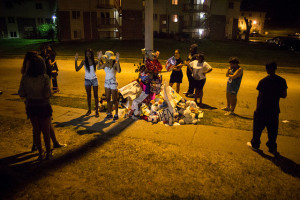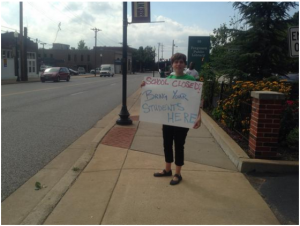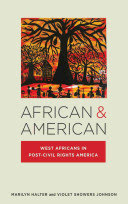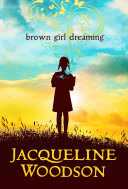Thinking about African American History Month: Making It Every Month

Established in 1976 (as an expansion of Negro History Week, first established by Carter G. Woodson in 1925), African-American History Month has been observed for almost forty years. African-American history is, profoundly, American history: early colonial and Revolutionary-era history is deeply rooted in debates over the establishment of slavery in the new republic, none of which resulted in a definitive end to slavery. That definitive ending did not come until the end of the Civil War, almost a century after the nation’s founding. African-Americans won the right to vote shortly after the Civil War, but saw their rights and claims to citizenship sharply curtailed by other legislation and a significant loophole in the 15th Amendment, which prohibited denying the vote based on “on account of race, color, or previous condition of servitude” but said nothing about other means of restricting the vote. Consequently, Southern states were able to use poll taxes, literacy tests, and other requirements to continue to prevent African-Americans from voting, up until the passage of the Voting Rights Act of 1965, almost a hundred years after the 15th Amendment’s ratification.
Slavery and civil rights activism are major points of entry into African-American history, but African-American history involves more than enslavement’s beginning, duration, and end, and more than the struggle for civil rights, important as those histories are. We can also ask questions about African-Americans’ contributions to American culture, to American politics, to every aspect of American history and life. We can identify African-Americans whose contributions may have gone unheralded if not made invisible (check out these Cold-War-era African-American women scientists and mathematicians…). We can ask how the ways in which history is written, how history gets “done”, have worked to downplay African-Americans’ presence and contributions, or limited their presence to a smaller number of undoubtedly important figures, who cannot be downplayed, but whose stories do not have to outweigh other, lesser-told stories.
We can also ask about what kinds of materials are held in archives and Special Collections libraries. Research libraries have emerged which focus specifically on African-American historical collections: the Schomburg Center for Research in Black Culture in Harlem, a branch of the New York Public Library, is the largest library of this type in the United States. The second-largest library dedicated to African-American historical collections is here in Atlanta: the Auburn Avenue Research Library (currently under expansion), a branch of the Atlanta-Fulton County Public Library is literally just down the street from Georgia State University. Local archives here in Atlanta with significant African-American historical materials, including materials relating to African-American literary figures, include the Atlanta University Center’s Woodruff Library Archives Research Center, Emory University’s Manuscripts, Archives, and Rare Book Library (MARBL), the Atlanta History Center, the National Archives Southeast center, and the Georgia Archives. Reference staff at these organizations can provide more information about their holdings of African-American resources.

Events, locations, names of individuals become keywords and subject terms as time move forward and actions become part of history. Places like Selma, Little Rock, Birmingham, the state of Mississippi, become crucial locations for African-American history, but African-American lives and communities create cultural, social, economic, and political histories across the nation. Names like Frederick Douglass, W. E. B. DuBois, A. Philip Randolph, Emmett Till, Rosa Parks, Martin Luther King, Jr. become pivotal keywords/figures in American history. But history can and should include ordinary people who live their lives and take up challenges when they are faced with them. As of August 2014, the St. Louis, Missouri suburb Ferguson entered into the nation’s history vocabulary as a flashpoint for racially motivated police brutality and municipal injustice following white police officer Darren Wilson’s shooting of the unarmed teenager Michael Brown. Eric Garner’s death at the hands of a police officer utilizing an illegal chokehold, in addition to Brown’s death and the deaths of other young black men have added to the outcry which began in Ferguson. Fifty years after the Mississippi Summer Project, where young people from around the country traveled to Mississippi to establish “freedom schools” and register local African-Americans to vote, activists from around the country flocked to the predominantly African-American town of Ferguson to provide support and services.

The Ferguson story continues to play out, with news coming now that the Justice Department is completing a report that is critical of the Ferguson police department’s practice of disproportionately ticketing and arresting African-Americans. In November 2014, when St. Louis County prosecutor Bob McCulloch announced that the grand jury had ruled against bringing Wilson to trial, more protests took place in St. Louis County and elsewhere. In his statement, McCulloch suggested that social media had muddied any investigation of the events of August 9 by circulating “various accounts” online; “the town,” said McCulloch, “was filled with speculation and little, if any, solid accurate information.” (For a fascinating version of McCulloch’s statement, annotated by a lawyer, click here).
Whether you agree with McCulloch or not, the internet and social media are rapidly emerging sources of primary-source material. Washington University of St. Louis and the Internet Archive are working to create archives of digital materials relating to the Ferguson protests. The New York Times published documents and evidence presented to the grand jury on the Michael Brown case in Clayton, Missouri, as released by McCulloch; more recently, the Times reported on efforts to preserve the material culture of the Ferguson community, including materials damaged in the protests following Brown’s death and McCulloch’s statement.

Ferguson is history in progress; the immediate commentary, reporting, videos, photographs, material culture, and even, arguably, architecture (consider the damaged buildings, or the presence of the Ferguson Public Library, which provided local children a safe place to be when the Ferguson-Florissant School District closed down during the protests) will be the resources historians will study when they write about Ferguson, just as historians survey and analyze primary sources from the events and time when they write about the Nat Turner rebellion, the elections of the first African-American Congressmen during Reconstruction, or Selma.
Here at the GSU Library, we strive to collect secondary resources which will provide information and insight into the breadth and ongoing development of African-American historical scholarship and knowledge. By learning more about African-American history, about the African-Americans who made American history, we can also identify tools, questions, ways of thinking about history that will help us continue to expand our awareness of American history—all year round. In this way, every book or article about African-American history not only expands and deepens our knowledge… it also suggests questions and tools you the reader can use to ask about and learn about and wonder about other African-Americans, and to bring them into the light.
Recently acquired books on African-American history include (but are not limited to!):
 Renee Christine Romano, Racial Reckoning: Prosecuting America’s Civil Rights Murders (2014)
Renee Christine Romano, Racial Reckoning: Prosecuting America’s Civil Rights Murders (2014)- Vincent Intondi, African Americans against the Bomb: Nuclear Weapons, Colonialism, and the Black Freedom Movement (2015)
- Peniel E. Joseph, Stokely: A Life (2014)
- Marilyn Halter, African and American: West Africans in Post-Civil Rights America (2014)
- Paul Alkebutan, The African American Press in World War II: Toward Victory at Home and Abroad (2014)
- Linda M. Heywood, et al., eds., African Americans in US Foreign Policy: From the Era of Frederick Douglass to the Age of Obama (2015)
- Holger Weiss, Framing a Radical African Atlantic: African American Agency, West African Intellectuals, and the International Trade Union Committee of Negro Workers (2014)
- Carol Anderson, Bourgeois Radicals: The NAACP and the Struggle for Colonial Liberation, 1941-1960 (2015)
- Mary Frances Berry, “We Are Who We Say We Are”: A Black Family’s Search for Home Across the Atlantic World (2015)
- Katrine Dyonne Thompson, Ring Shout, Wheel About: The Racial Politics of Music and Dance in North American Slavery (2014)
- Edward E. Baptist, The Half Has Never Been Told: Slavery and the Making of American Capitalism (2014)
Primary-source materials, like autobiographies, diaries, and other resources can also be found in our catalog; if you are looking for autobiographies, diaries, or the published papers of a particular person, search using the “Subject” search and the person’s name (last name first). Newly acquired examples include:
- Carol Ruth Silver, Freedom Rider Diary: Smuggled Notes from Parchman Prison (published in 2014)
- Herbert C. Cover and Dwight Eisnach, eds., How the Slaves Saw the Civil War: Recollections of the War through the WPA Slave Narratives (published in 2014)
- Joel Katz, And I Said No Lord: A Twenty-One-Year-Old in Mississippi in 1964 (published in 2014)
- Rev. Ed King, Ed King’s Mississippi: Behind the Scenes of Freedom Summer (published in 2014)
- George Clinton, Brothas Be, Yo Like George, Ain’t That Funkin’ Kinda Hard on You? (2014; autobiography)
We also have books on African-American history and lives for children. New titles include:
 Jacqueline Woodson, Brown Girl Dreaming (2014; National Book Award winner)
Jacqueline Woodson, Brown Girl Dreaming (2014; National Book Award winner)- Patricia Hruby Powell, Josephine: The Dazzling Life of Josephine Baker (2014)
- Steve Sheinkin, The Port Chicago 50: Disaster, Mutiny, and the Fight for Civil Rights (2014)
More broadly, the GSU Library offers a number of important primary-source digital collections relating to African-American history. These are available to GSU affiliates:
- History Vault: Black Freedom Struggle in the 20th Century: Primary sources related to 20th-century African American history and the Civil Rights Movement, including federal government records, organizational records, and personal papers.
- Accessible Archives: Includes several collections relevant to African-American history, including
- “We Were Prepared for the Possibility of Death:” Freedom Riders in the South, 1961
- African America, Communists, and the National Negro Congress, 1933-1947
- FBI Surveillance and James Forman and SNCC
- and others!
- Black Thought and Culture: Electronic collection focused on the historical development of black culture, containing approximately 100,000 pages of non-fiction writings by major American black leaders (teachers, artists, politicians, religious leaders, athletes, war veterans, entertainers, and other figures) covering 250 years of history.
- African American Newspapers: Selection of African-American newspapers published during the 19th century.
- Atlanta Daily World (1931-2003) and Chicago Defender (1910-1975): Historical African-American newspapers.
- Slavery, Abolition, and Social Justice: Includes thousands of manuscripts, pamphlets, books, paintings, maps, and images from 1490 to 2007.
And some examples of freely available websites including African-American history primary sources:
- Documenting Ferguson (Washington University at St. Louis)
- Mapping Decline: St. Louis and the American City (excellent resource showing demographic change in St. Louis County; see also companion scholarly book, Mapping Decline: St. Louis and the Fate of the American City (2008)
- American Memory: Library of Congress, African-American History Collections
- Digital Harlem: Everyday Life, 1915-1930
- The Trans-Atlantic Slave Database (information about over 35,000 slave trading voyages. Includes the African Names Database, which identifies over 67,000 Africans aboard slave ships, using name, age, gender, origin, and place of embarkation)
- Unknown No Longer: A Database of Virginia Slave Names (Virginia Historical Society)
- The Black Population in the United States (US Census Bureau)
- Civil Rights Digital Library (Digital Library of Georgia)
- Freedom Summer Digital Archive (Miami University of Ohio; Western College for Women, now part of Miami University, was the training center for the Mississippi Summer Project)
Keep celebrating!
Updated to add: Atlanta University Center’s Archives Research Center has been added to the list of local archives with African-American materials; Unknown No Longer has been added to the list of freely available digital primary source sites.
